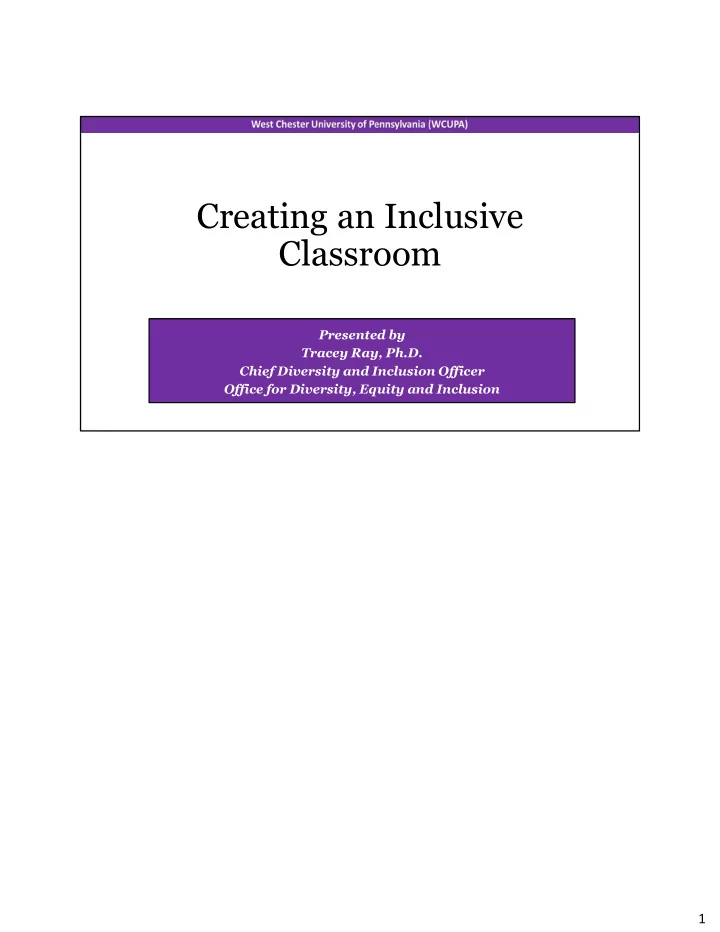

Creating an Inclusive Classroom Presented by Tracey Ray, Ph.D. Chief Diversity and Inclusion Officer Office for Diversity, Equity and Inclusion 1
Diversity, Equity and Inclusion (Updated- 7/12/2018) Mission: • The Office for Diversity, Equity and Inclusion provides leadership and expertise to West Chester University to advance its commitment to the principles of inclusivity, civility, service, and academic excellence. Through programmatic and educational initiatives, collaborative partnerships and outreach, we cultivate an environment that welcomes all. VISION: • To become a national leader of inclusive excellence in higher education by leveraging internal and external partnerships. 2
July 22, 2019 4
Cultural Competence “the ability to function with awareness, knowledge and interpersonal skill when engaging people of different backgrounds, assumptions, beliefs, values , and behaviors.” Def. Cultural Competence: (Hogan,) “the ability to function with awareness, knowledge and interpersonal skill when engaging people of different backgrounds, assumptions, beliefs, values , and behaviors.” What stands out to you in this definition? Key Points Requires awareness, knowledge and interpersonal skill Assumes difference is present Assumes engagement across difference Culture is present 6
2019-2021 University Strategic Plan- Pathways to Student Success Diversity & Inclusion Goals • Learn It! • Live It! 8
Model of Multiple Dimensions of Identity Abes, Jones & McEwen, 2007 This model conceptualizes the different dimensions of identity, contextual influences on our perceptions of ourselves, and a “meaning-making filter” Characteristics of identity move further and closer from our central self, and they continually interact and overlap. a fluid and dynamic one, representing the ongoing construction of identities and the influence of changing contexts on the experience of identity development 12
Ground Rules for Class Discussions/ Active Participation Activity Come to class prepared Disagree openly with any member of the class Be Respectful Share all relative information when sharing information There are no “stupid questions!” Always feel Test your assumptions and inferences free to ask questions and engage with any question that arises in the class. Avoid using generalizations All members of the class are expected to Avoid offensive language participate in the various aspects of the class Openness to ideas, thoughts and opinions that and classroom experiences. may differ from your own/ Seek to understand, Discuss undiscussable issues then to be understood (Active listening) Maintain confidentiality through information Save space for someone that hasn’t spoken or shared within and outside of the class engaged in dialogue Keep the discussions focused/ Relay Don’t interrupt others information with context 17
QUESTIONS 20
Recommend
More recommend